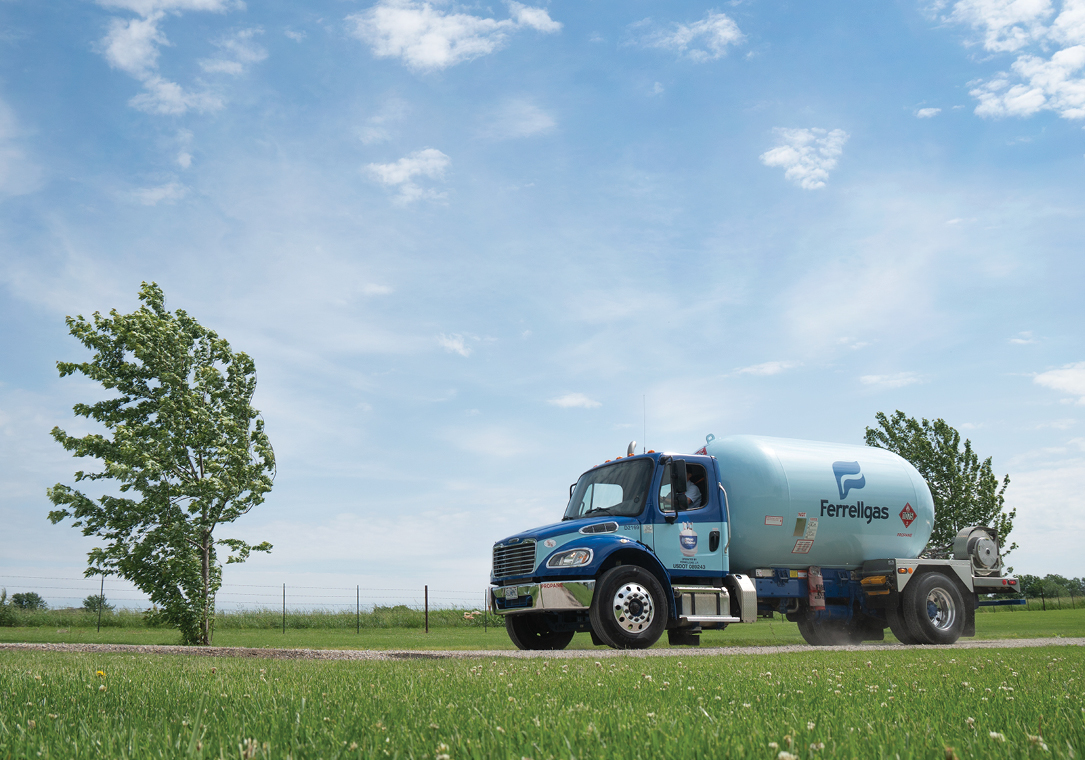Propane vs. Natural Gas: Cost, Differences, & Environmental Impact
What Are the Cost Differences of Natural Gas vs Propane?
Natural gas and propane have different energy content and efficiency levels, so comparing their costs isn’t just about looking at the price tag.
To start, it’s helpful to understand how each fuel is measured:
- Natural Gas: Sold in therms or cubic feet. One therm equals 100,000 BTUs (British Thermal Units).
- Propane: Sold by the gallon. Each gallon has about 91,500 BTUs.
Once you know this, you can compare energy costs more fairly. Here’s how:
- Option 1: Multiply the propane price per gallon by 1.087 to find the equivalent price per therm of natural gas.
- Option 2: Multiply the natural gas price per therm by 0.92 to find the equivalent price per gallon of propane.
For example, if propane costs $1.50 per gallon and natural gas costs $1.50 per therm:
- Propane: $1.50 × 1.087 = $1.63 per therm
- Natural Gas: $1.50 × 0.92 = $1.38 per gallon
At first glance, natural gas appears less expensive, but propane burns at a rate of two-to-one compared to natural gas. This makes propane the more energy-dense fuel.
Four Key Differences Between Propane Vs. Natural Gas
Pricing isn’t the only factor to consider when choosing between propane and natural gas. Let’s take a look.
Availability
Natural gas connects directly to a public gas line. If you don’t live near a gas line, it’s not an option.
Propane, however, is stored in a tank on your property. Since it doesn’t rely on pipelines, it can be used virtually anywhere. That gives you more control, especially during emergencies or power outages.
Delivery Methods
Natural gas is delivered through pipelines, while propane is delivered by truck to a refillable tank on your property which needs to be topped off occasionally.
If you’re with Ferrellgas, our Auto Fill program makes refills easier. We’ll deliver propane when our system indicates you need a refill, so you always have plenty when you need it.
Production
Propane and natural gas are produced in different, yet related ways. Natural gas is extracted from the earth by drilling into rock formations beneath the surface. The gas comes to the surface through a well, which is drilled into the earth. Pipelines then collect the gas coming out of the well and send it to processing plants.
Propane is a byproduct of natural gas processing and crude oil refining. It is separated from natural gas during processing and then the propane is purified to meet industry standards.
Energy Density
One major difference between propane and natural gas is their energy content. Propane contains approximately 2,500 BTUs per cubic foot, while natural gas only contains approximately 1,000 BTUs per cubic foot. Because propane burns hotter and more efficiently, you may need less of it to achieve the same results as natural gas.

Environmental Impact
Propane is a clean-burning fuel. When vaporized, propane produces virtually no ozone-harming effects. On the other hand, natural gas is made mostly of methane, which is a powerful greenhouse gas that is slow to break down and produces a global warming effect 28 times that of Carbon dioxide (CO2).
If you’re thinking about the environment, propane might be the better choice.
Chemical Composition
Hold tight, we’re diving into the science behind both.
Propane’s chemical formula is C3H8. It contains more carbon and hydrogen atoms, so it packs more energy into every drop.
Natural gas (methane) is CH4. It contains fewer carbon atoms but is less energy-dense.
Both burn clean, but with fewer carbon atoms, natural gas isn’t as energy-rich as propane.
Safety Differences
Both fuels are safe when used correctly, but accidents can happen.
Propane has a strong “rotten egg” smell, thanks to an added chemical called Ethyl Mercaptan, which makes identifying leaks easier. If you smell gas or suspect a leak, act immediately. Leave the area right away, ensuring that everyone else does the same. Once you are at a safe distance, call 911 and Ferrellgas at 866-708-8209. Our team will respond as quickly and safely as possible.
If it is safe to do so, turn off the main gas supply valve on your tank. To shut it off, turn the hand wheel clockwise until it stops.
Do not return to the area until a professional has confirmed it is safe. Your safety is the top priority, so always wait for official clearance before going back.
Which is Best for Residential Use?
Propane is an excellent energy source for residential use. There are three key factors to keep in mind: current market prices, location, and use frequency.
1. Current Market Prices: The price of propane and natural gas can fluctuate due to factors like supply, demand, and seasonality. While natural gas often costs less per unit, propane is more energy-dense, which means you’ll need less of it to achieve the same results.
2. Location: In rural areas, propane becomes a more practical solution since it’s delivered directly to on-site storage tanks, giving homeowners more control over their energy supply. For those seeking flexibility and independence, propane might be the better choice.
3. Use Frequency: Propane’s efficiency and higher energy density make it a strong contender for any residential home. Homes with year-round energy demands like heating, cooking, and hot water may require a larger propane tank.

Propane & Natural Gas FAQs
Can I convert my natural gas appliances to propane?
Yes, most natural gas appliances can be converted. You’ll need a conversion kit and a professional to make sure it’s done safely.
What should I do if I smell propane gas in my home?
If you smell gas or suspect a leak, act immediately. Leave the area right away, ensuring that everyone else does the same. Once you are at a safe distance, call 911 and Ferrellgas at 866-708-8209. Our team will respond as quickly and safely as possible.
If it is safe to do so, turn off the main gas supply valve on your tank. To shut it off, turn the hand wheel clockwise until it stops.
Do not return to the area until a professional has confirmed it is safe. Your safety is the top priority, so always wait for official clearance before going back.
When to use natural gas vs propane?
From powering cars and appliances to heating greenhouses and homes, propane is the ideal choice for anyone needing a flexible, efficient fuel source.
What are the disadvantages of natural gas?
Natural gas is dependent on local pipelines, and some residents may not have built-in access. Leaks can be harmful to the environment, as well.
Natural Gas Vs. Propane: Which Is The Better Option?
There’s no one-size-fits-all answer. Think about what’s most important to you—price, convenience, or environmental impact—and choose the fuel that checks all your boxes.
Ready to make the switch to propane?
Whether you're looking for a reliable fuel source, greater energy efficiency, or an environmentally friendly option, propane has plenty of benefits. With Ferrellgas, getting started is easy. Just reach out to your nearest office to get started today.
Switch to Ferrellgas today!
Contact UsSources
Environmental and Economic Fuel Comparison, Energy Kinetics
Fuel Properties Comparison, U.S. Department of Energy
Natural gas explained, U.S. Energy Information Administration
Natural Gas Leaks in the Home: What You Need to Know, ADT
Propane and the Environment, Propane Education & Research Council
Propane Chemical Structure and Formula, Propane Education & Research Council
Propane vs. Natural Gas: What’s the Difference?, Angi
US Propane Retail Price, YCharts
What Is the Difference Between Propane and Natural Gas?, Meritus
CATEGORIES
Archives
- Summer 2025
- Spring 2025
- Winter 2024
- Fall 2024
- Summer 2024
- Spring 2024
- Winter 2023
- Fall 2023
- Summer 2023
- Spring 2023
- Winter 2022
- Fall 2022
- Summer 2022
- Spring 2022
- Winter 2021
- Fall 2021
- Summer 2021
- Spring 2021
- Winter 2020
- Fall 2020
- Summer 2020
- Spring 2020
- Winter 2019
- Fall 2019
- Summer 2019
- Spring 2019
- Winter 2018
- Fall 2018
- Summer 2018
- Spring 2018
- Winter 2017
